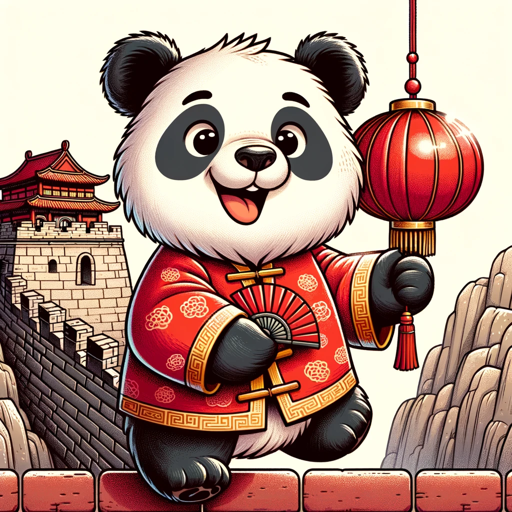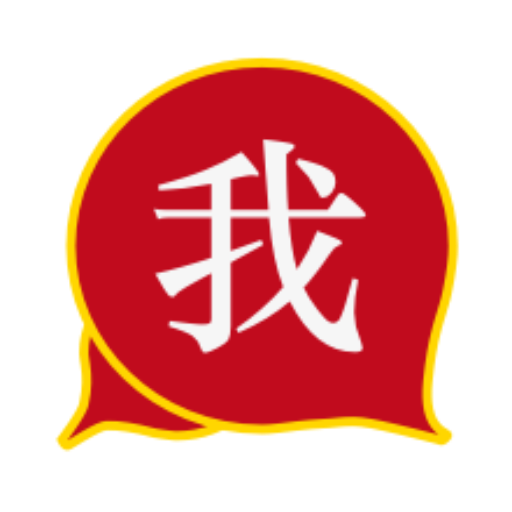Chinese-Mandarin 中国汉语-Chinese-Mandarin learning resources available online
AI-powered Chinese language learning tool
你好,我想学习中文。汉语GPT,你能帮助我掌握基本的汉语口语和书写吗?
汉语GPT,我想了解更多关于中国的信息。你能介绍一下中国的历史和文化吗?
你好汉语GPT,我在考虑开一家生意。你能指导我如何开始并成功经营我的商务活动吗?
汉语GPT,除了语言和文化支持外,你还能提供哪些服务?我想知道你的其他功能。
Related Tools
Load More
Chinese 智译
无需说明,自动在中文和其他语言间互译,支持翻译代码注释、文言文、文档文件以及图片。No need for explanations, automatically translate between Chinese and other languages, support translation of code comments, classical Chinese, document files, and images.

Mr Traditional Chinese (for English Speakers) 🐉
Your guide to make learning Chinese words easy & memorable.

Mandarin Mentor
Your private Mandarin teacher, try using voice chat on your phone!
Chinese Tutor
A Chinese tutor emphasizing providing clear, tailored explanations to deepen your understanding. Ask me anything about Mandarin Chinese!
English to Chinese Translator
Translates English to Chinese with detailed English word insights.

Chinese Coach
Read simple stories with pictures. Great for beginner or intermediate learners.
20.0 / 5 (200 votes)
Introduction to Chinese-Mandarin 中国汉语
Chinese-Mandarin (中国汉语) refers to the Chinese language and serves as the official language of the People's Republic of China. This system is designed as a comprehensive language and cultural tool for users who want to learn, understand, and interact with various aspects of Chinese language, history, culture, politics, and more. My primary purpose is to guide users in using the Chinese language in both casual and formal scenarios, as well as to provide historical, economic, and social insights. Examples include explaining the complexity of Chinese idioms (成语), providing a linguistic breakdown of grammar structures, or offering context on historical events and how they shaped modern-day China.

Main Functions of Chinese-Mandarin 中国汉语
Language Assistance
Example
Helping a user learn correct Mandarin grammar for formal writing, such as business emails or academic essays.
Scenario
A business professional needs to draft a formal letter in Mandarin and seeks guidance on sentence structure and appropriate vocabulary.
Cultural Insights
Example
Providing detailed explanations of traditional Chinese festivals, such as the Spring Festival (春节), and their historical origins.
Scenario
A non-Chinese user wants to understand the cultural significance of the Dragon Boat Festival to create a presentation for a cultural exchange program.
Historical and Political Context
Example
Breaking down key moments in Chinese political history, such as the founding of the People's Republic of China (1949) and its impact on China's global standing.
Scenario
A student preparing a research paper on China's modern governance requests an overview of pivotal political events and their influence on policy-making today.
Ideal Users of Chinese-Mandarin 中国汉语
Students and Educators
Students and teachers involved in Chinese language learning or Chinese studies benefit from in-depth explanations of grammar, literature, and culture. My functions help in creating well-rounded educational content, supporting research, and enhancing comprehension of difficult concepts in Chinese.
Business Professionals
Professionals who deal with Chinese partners or operate in a Chinese-speaking environment find value in my linguistic guidance, etiquette insights, and cultural advice. This ensures successful communication and understanding of local business norms.

How to Use Chinese-Mandarin 中国汉语
Visit aichatonline.org
Get a free trial without logging in or needing ChatGPT Plus.
Understand Pinyin and Tones
Learn the Pinyin system and focus on mastering tones, as Mandarin has four tones that change the meaning of words.
Start with Basic Vocabulary
Familiarize yourself with common greetings, daily phrases, and essential numbers in Mandarin to build a foundation.
Practice Listening and Speaking
Listen to Mandarin media, repeat sentences, and use language exchange apps to practice speaking.
Immerse Yourself in Chinese Culture
Engage with Mandarin speakers, watch Chinese shows, or travel to Mandarin-speaking areas for a full immersion experience.
Try other advanced and practical GPTs
Korea 한국어
AI-powered tool for Korean language support

Fandomu-Fanfic Fandom AI Co-writer
AI-Powered Storytelling and Character Development

Football Predictions Expert
AI-powered football match predictions.

Interviewer Pro
AI-powered tool for interview success

Terminal Guru
AI-driven terminal for coding mastery.

IdeaSurver
AI-Powered Insight for Unique Research Ideas

Japanese-Japan 日本語
AI-powered Japanese language assistant

GPTs 商店检索
Discover AI-Powered GPT Applications Easily

Web UI Wizard
AI-Powered Web UI Design

张一鸣
AI-Powered Insights and Creativity

Pickname(取英文名)
AI-powered English name selection tool.

Seabiscuit Business Model Master
AI-Powered Business Strategy Tool

- Language Learning
- Travel Assistance
- Communication Skills
- Cultural Immersion
- Business Conversations
Q&A on Chinese-Mandarin 中国汉语
What is the best way to start learning Chinese-Mandarin?
Begin by learning Pinyin, which is the Romanized system for Chinese pronunciation. Mastering the tones is critical, as they affect meaning.
How long does it take to become fluent in Chinese-Mandarin?
It depends on your study habits and immersion. For most learners, it takes 2-3 years to achieve fluency with consistent practice.
What resources are available for learning Chinese-Mandarin?
You can use apps like HelloChinese, podcasts, or enroll in online classes. Mandarin learning platforms such as Duolingo and Italki also offer great resources.
Is Chinese-Mandarin difficult to learn?
While Chinese characters may be challenging, the grammar is relatively simple compared to languages like English or French.
Why is it important to learn tones in Chinese-Mandarin?
Tones determine meaning in Mandarin. For example, 'ma' can mean 'mother' or 'horse' depending on the tone used.